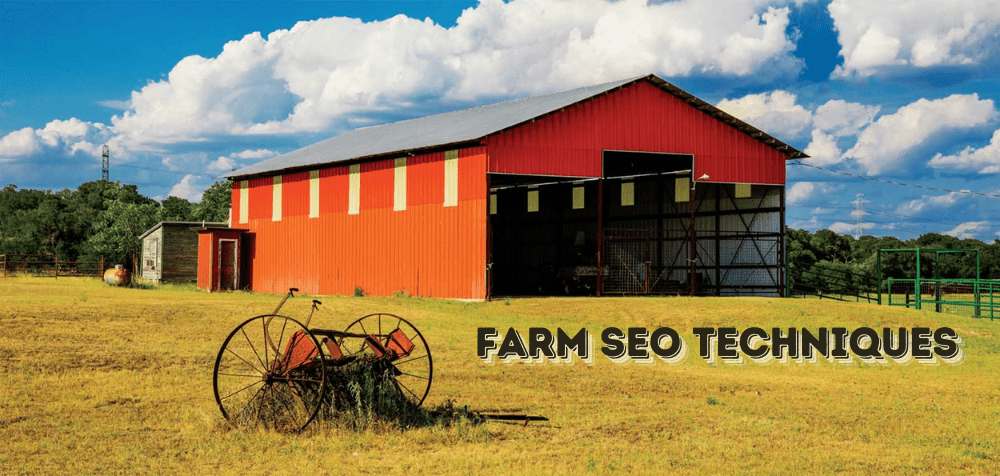Search Engine Optimization (SEO) enhances the visibility of a website on search engine result pages (SERPs). For farms, this means optimizing your online presence so potential customers can easily find your products and services online. In today’s digital age, consumers often use search engines to find local farms, organic produce, and sustainable farming practices.
Importance of SEO in the Agricultural Sector
SEO helps farms reach a broader audience, increase their customer base, and boost sales. With growing interest in farm-to-table dining and organic produce, a strong online presence is crucial. SEO can help farms stand out in a competitive market, attract more website visitors, and convert them into loyal customers.
Overview of SEO Strategies for Farms
Developing an effective SEO strategy involves understanding SEO basics, conducting keyword research, implementing on-page and off-page SEO techniques, focusing on local SEO, and creating valuable content consistently. Technical SEO and regular performance monitoring are also essential for maintaining and improving online visibility.
Understanding SEO Basics
What is SEO?
SEO stands for Search Engine Optimization. It involves practices designed to improve the appearance and positioning of web pages in organic search results, which is the primary way people discover online content.
How SEO Works
SEO includes various components like keywords, content, website structure, backlinks, and user experience. Search engines use algorithms to analyze these factors and determine your website’s ranking in search results.
Importance of Keywords
Keywords are the terms people use in search engines when looking for information. Using the right keywords in your content helps search engines understand your pages and match them with relevant searches, improving your website’s visibility.
Researching Keywords for Farms
Identifying Relevant Keywords
Brainstorm keywords relevant to your farm and its offerings. Consider what potential customers might search for, such as “organic vegetables,” “local honey,” “sustainable farming,” and “farm tours.”
Tools for Keyword Research
Tools like Google Keyword Planner, SEMrush, Ahrefs, and Moz help you find the best keywords for your SEO strategy by providing insights into keyword popularity, competition, and trends.
Long-Tail Keywords for Farms
Long-tail keywords are specific phrases with lower search volumes but higher conversion rates. For example, instead of targeting “vegetables,” use “organic heirloom tomatoes for sale.” These are less competitive and often more effective at attracting ready-to-buy customers.
On-Page SEO Strategies
Optimizing Website Content
Your website content should be informative, engaging, and optimized for your target keywords. This includes page text, blog posts, product descriptions, and other written content. Use keywords naturally and provide valuable information.
Importance of Meta Descriptions
Meta descriptions are summaries of your web pages that appear in search results. They should be compelling and include target keywords to encourage clicks. While they don’t directly affect rankings, they improve click-through rates, positively impacting SEO.
Using Headers Effectively
Headers (H1, H2, H3, etc.) help organize content and make it easier for search engines to understand. Use H1 for main titles with primary keywords, and H2/H3 for subheadings to improve readability and user experience.
Image Optimization
Optimize images with descriptive file names and alt text including keywords. This helps search engines understand images and improves visibility in image search results. Compress images for faster loading to enhance performance.
Off-Page SEO Strategies
Building Backlinks
Backlinks from other websites signal trustworthiness and authority to search engines. Create high-quality content to attract links and reach out to industry websites for link-building opportunities.
Guest Blogging
Writing articles for other websites in your industry helps build backlinks, reach a broader audience, and establish authority. Include links back to your website to drive traffic and improve SEO.
Social Media Integration
Share content on social media platforms like Facebook, Twitter, and Instagram to reach a wider audience. Engaging with followers and encouraging shares can increase visibility and attract more visitors, indirectly benefiting SEO.
Local SEO for Farms
Importance of Local SEO
Local SEO helps attract nearby customers. When people search for local products or services, you want your farm to appear in the results. This involves optimizing your online presence for local searches.
Optimizing Google My Business
Google My Business is a free tool to manage how your farm appears on Google Search and Maps. Ensure your profile is complete and accurate, and encourage customer reviews to boost local SEO.
Local Keywords
Use local keywords in your content, such as “organic farm in [Your City]” or “local produce near me,” to improve visibility in local searches.
Online Reviews and Testimonials
Encourage satisfied customers to leave reviews on platforms like Google, Yelp, and Facebook. Positive reviews enhance local SEO and attract more local customers.
Content Marketing for Farms
Creating Valuable Content
Content marketing involves creating and sharing valuable content to attract and engage your audience. For farms, this includes blog posts, videos, infographics, and social media posts that provide useful information.
Blogging for Farms
Blogging about farming topics like growing tips, recipes, sustainability practices, and farm updates improves SEO. Use target keywords naturally to enhance search engine rankings.
Video Content
Create engaging videos showcasing your farm, explaining products, and providing tips. Share videos on your website, YouTube, and social media to attract visitors and improve SEO.
Infographics and Visual Content
Infographics are visually appealing and help explain complex topics. Share them on your website and social media to attract visitors and enhance SEO.
Technical SEO for Farms
Improving Website Speed
A fast website is crucial for SEO. Use tools like Google PageSpeed Insights to analyze speed and identify improvements. Optimize images, reduce file sizes, and use a content delivery network (CDN) to boost performance.
Mobile Optimization
Ensure your website is mobile-friendly using responsive design. Test on various devices to provide a good user experience.
Using HTTPS
HTTPS secures data between your website and visitors. It’s important for SEO as it signals security to search engines. Ensure your website has an SSL certificate.
Structured Data Markup
Structured data markup helps search engines understand your content, improving visibility through rich snippets like star ratings and product prices. Use tools like Google’s Structured Data Markup Helper.
So what??
SEO is essential for growing your farm’s online presence and attracting more customers. Understand the basics, conduct keyword research, implement on-page and off-page strategies, focus on local SEO, and create valuable content. Monitor performance and adjust strategies based on data for continuous improvement.
Start optimizing your farm’s website today to reach a broader audience and boost sales. Use the tips and strategies outlined to improve SEO and attract more visitors. Stay updated on trends and refine your approach for ongoing success.


